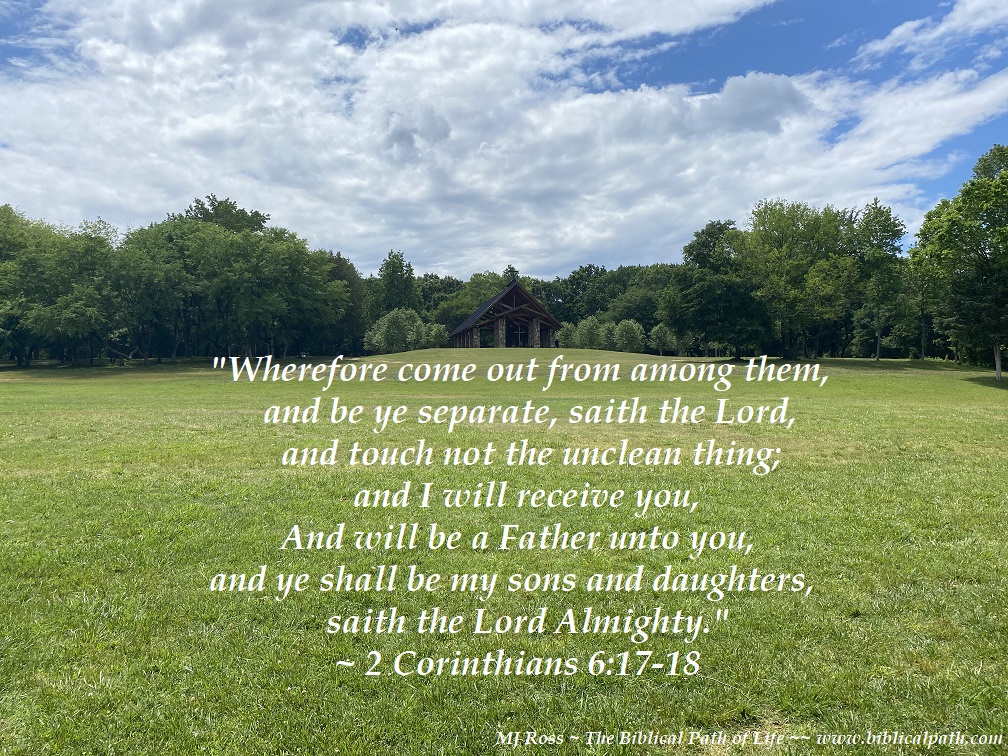
Philippians 1:6
First Thessalonians was written to the church at Thessalonica, which Paul established on his second missionary journey (see Acts 17). There had been an uprising incited by Jews who rejected the teaching of Jesus, and Paul and Silas were sent away by night – keeping them safe. Although they had not been in Thessalonica long, enough people believed when they heard the Gospel message preached, and a church was established.
Paul recognized their “work of faith” as he wrote to this church. “Remembering without ceasing your work of faith, and labour of love, and patience of hope in our Lord Jesus Christ, in the sight of God and our Father” (1 Thessalonians 1:3). It would be good to remember what Jesus had told the people when they asked him what work they must do. “28. Then said they unto him, What shall we do, that we might work the works of God? 29. Jesus answered and said unto them, This is the work of God, that ye believe on him whom he hath sent” (John 6:28-29). That One whom God sent is Jesus. Our only work of salvation is to believe in Jesus, whom God sent. Once you believe in Jesus by faith, He will be with you, helping you – always. Paul also wrote about this in his letter to the Philippians. “Being confident of this very thing, that he which hath begun a good work in you will perform it until the day of Jesus Christ” (Philippians 1:6). In this verse, recognize that the “good work in you” refers to what Jesus had explained. It is faith (belief) in Jesus. It is referred to as our only work for salvation. But if you noticed, Paul also commended their “labour of love.” This tells of how they revealed their love for Christ by obeying His Word and becoming more like Him. Read how this is revealed in the book of James. “17. Even so faith, if it hath not works, is dead, being alone. 18. Yea, a man may say, Thou hast faith, and I have works: shew me thy faith without thy works, and I will shew thee my faith by my works” (James 2:17-18). Faith and works go hand in hand to reveal Jesus to the lost world. It is important to understand that believing in Jesus is vital, but it is just as important to put the principles of God’s Word into action in one’s life. It is then that God is able to work, and the world will see what God has done in the heart.
This faith and labor of love led them to the “patience of hope” that was revealed in them. In each chapter of 1 Thessalonians, Paul reminded them of that hope – as they waited for the return of Jesus to take them home to heaven.
Paul also had an important message for them. “For our gospel came not unto you in word only, but also in power, and in the Holy Ghost, and in much assurance; as ye know what manner of men we were among you for your sake” (1 Thessalonians 1:5). Paul declared that they (Paul, Silas, and Timothy) had preached the Gospel message of Jesus. Remember that Gospel message they preached: “1. Moreover, brethren, I declare unto you the gospel which I preached unto you, which also ye have received, and wherein ye stand; 2. By which also ye are saved …3. … how that Christ died for our sins according to the scriptures; 4. And that he was buried, and that he rose again the third day according to the scriptures” (1 Corinthians 15:1-4). Paul recognized that this Gospel message had come to the people in Thessalonica not “in word only.” Sure, they heard the words of the Gospel message, but Paul wanted them to understand something else. Those words came to them in “power, and in the Holy Ghost.” To understand this better, see the following. “Whereunto he called you by our gospel, to the obtaining of the glory of our Lord Jesus Christ” (2 Thessalonians 2:14). One is “called” by the conviction by the Holy Spirit of sin in one’s heart after hearing that Gospel message. What one does with that call (that conviction) is up to the individual. Some repent (have a change of heart and mind about sin, turning away from that sin toward Christ). Remember that is our only “work” for salvation. Others refuse that call (that conviction), choosing instead to continue on the path that leads away from a changed life in Christ. Each person has to make that choice. However, when one responds to that call, there is a specific power revealed. Read what Paul wrote about it. “For I am not ashamed of the gospel of Christ: for it is the power of God unto salvation to every one that believeth; to the Jew first, and also to the Greek” (Romans 1:16). The Gospel message of Christ is the power of God to salvation to everyone that believes. It is then that one is able to live a Christ-like life – which is what Paul, Silas, and Timothy had done.
Have you believed, by faith, in Jesus which is the power of God unto salvation, enabling you to live a Christ-like life?








